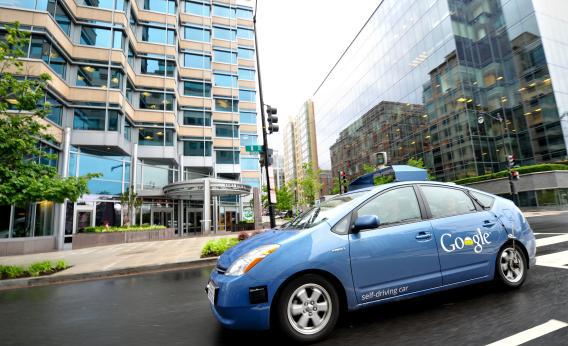Self-driving cars are on a roll. They were legalized in Nevada in February, and California’s state senate approved them in May. Google has been testing them on public roads for years, and Ford now predicts an autonomous-driving mode will be available in its cars by 2017.
The main problem, according to a recent Future Tense piece by psychologist Adam Waytz, will be getting drivers comfortable with the idea of ceding control to a machine. But in a press address on Thursday, Google’s Eric Schmidt was undaunted by this consideration. Noting that self-driving cars are much safer than human-driven ones, he predicted that they would “become the predominant mode of transportation in our lifetime,” according to TechCrunch. Would technophobes really accept them? “Depends on how drunk they are,” he cracked.
Meanwhile, though, Schmidt foresees another, more mundane obstacle to putting a self-driving car on the highway: “The current biggest problem is that it runs at the speed limit and nobody drives at the speed limit.”
You think you get frustrated today when someone in front of you is poking along at 55 even though everyone else is doing 65? Just wait until your commute is clogged with autonomous cars all doing the same thing—and honking does no good, because robots do not care if you honk at them.
